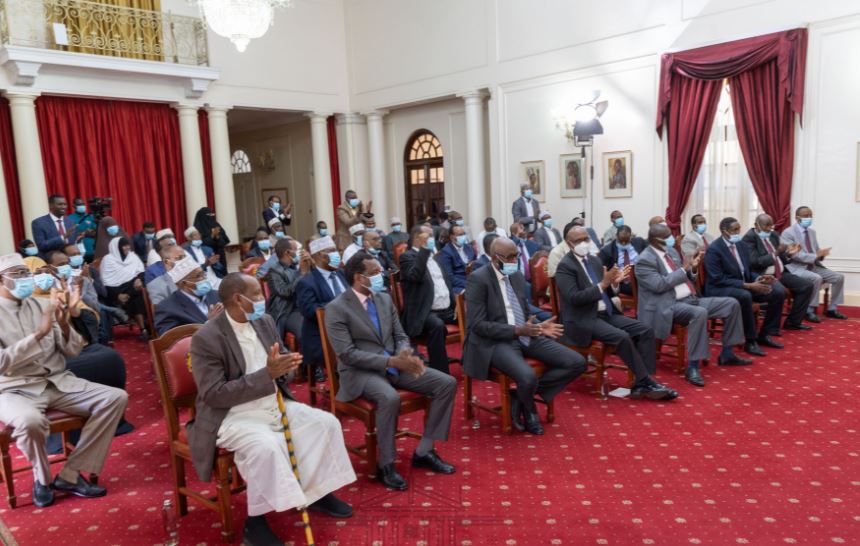 In 2023, a wave of excitement rippled through Nairobi’s tech scene with the arrival of Worldcoin, a cryptocurrency project aiming to provide a universal basic income through digital tokens.
In 2023, a wave of excitement rippled through Nairobi’s tech scene with the arrival of Worldcoin, a cryptocurrency project aiming to provide a universal basic income through digital tokens.
Worldcoin offered Kenyans a chance to earn free tokens in exchange for scanning their irises, a method that promised a more inclusive approach to cryptocurrency adoption. However, the project’s honeymoon phase was short-lived.
Concerns around data privacy and security led the Kenyan government to abruptly suspend Worldcoin’s operations in August 2023. This move left many questions unanswered: Was this the end of Worldcoin’s journey in Kenya?
How did this episode impact Nairobi’s burgeoning crypto industry? This article will tell you about the current state of Nairobi’s crypto sector in 2024.
What Happened With Worldcoin In Nairobi?
Worldcoin arrived in Nairobi with a bold vision: to create a global database of identities secured through blockchain technology. By scanning an individual’s iris with a special smartphone attachment, Worldcoin aimed to distribute a universal basic income (UBI) in the form of their cryptocurrency token.
This unique approach promised to overcome barriers to entry often faced in the crypto world, like complex sign-up processes or the need for initial investment.
The project yielded a lot of buzz in Nairobi. Kenyans, particularly those familiar with the challenges of financial inclusion, were intrigued by the idea of receiving free digital currency.
Worldcoin’s emphasis on using iris scans for identification resonated with a population increasingly accustomed to biometric authentication for various services. Local tech enthusiasts saw Worldcoin as a potential catalyst for wider cryptocurrency adoption in Kenya.
However, this initial excitement was overshadowed by concerns about data privacy and security. The Kenyan government expressed reservations about the collection of such sensitive biometric data as iris scans.
Critics argued that the vast database Worldcoin aimed to build could be vulnerable to hacks or misuse, potentially leading to identity theft or discrimination.
These concerns culminated in the Kenyan government’s decision to suspend Worldcoin’s operations in August 2023, effectively putting the project on hold.
Nairobi’s Crypto Industry In 2024
One year after the Worldcoin saga, Nairobi’s crypto industry presents a fascinating picture. While the initial excitement surrounding Worldcoin has subsided, interest in cryptocurrency has demonstrably grown.
The dust has settled since the Worldcoin saga, but what does Nairobi’s crypto industry look like today, in 2024? Has interest grown?
The answer is complex. While Worldcoin’s suspension undoubtedly dampened initial enthusiasm, it also sparked a conversation about cryptocurrencies and blockchain technology in Kenya. This has led to a more informed and cautious interest in the space.
Major Players and Local Projects
Several established cryptocurrency exchanges like Binance and Paxful operate in Kenya, offering Kenyans avenues to buy, sell, and trade cryptocurrencies. Additionally, local startups are emerging, focusing on blockchain-based solutions for specific sectors like remittance or microfinance.
These ventures aim to leverage the transparency and security of blockchain technology to address local challenges.
Worldcoin’s Impact
Worldcoin’s impact on Nairobi’s crypto scene is multifaceted. On the one hand, it raised awareness and ignited curiosity about cryptocurrencies. However, the project’s abrupt halt due to security concerns also instilled a degree of caution.
This cautious optimism is shaping Nairobi’s crypto industry, fostering a more measured approach focused on building secure and practical blockchain applications.
The Kenyan Crypto Industry
To gain deeper insights, we spoke with one of the experts, a renowned [Expert Title] with extensive experience in the Kenyan tech and blockchain space.
Through the experts’ insights, we gain a clearer picture of the evolving crypto scene in Nairobi. While the Worldcoin episode left its mark, it has also spurred a more thoughtful approach to cryptocurrency adoption in Kenya.
Local entrepreneurs are building innovative solutions, and Kenyans are approaching crypto with a newfound awareness of the underlying technology and potential risks.
There are several factors that contribute to this growth in Nairobi:
- Kenya boasts a robust mobile money ecosystem like M-Pesa, which could potentially be linked to crypto platforms, making entry easier for the tech-savvy population.
- Institutions like Unichrome offer blockchain certification courses, indicating a growing demand for professionals with crypto expertise.
- Local entrepreneurs are exploring blockchain applications beyond just currency, potentially in areas like supply chain management or voting systems.
Major Players and Local Projects
While there isn’t a dominant “crypto giant” in Nairobi yet, several startups and established players are making their mark:
Luno – A global cryptocurrency exchange platform with a presence in Kenya that offers user-friendly buying and selling of cryptocurrencies.
Ajani Africa – A Kenyan blockchain startup is focusing on building decentralized applications (dApps) for the African market.
KuriaPay – A Kenyan fintech company is exploring blockchain solutions for cross-border payments.
The impact of Worldcoin on Nairobi’s crypto scene is based on the positive and negative aspects:
Positive
Worldcoin sparked a wider conversation about cryptocurrency in Kenya, bringing it to the forefront of public discourse.
Worldcoin’s UBI approach highlighted the potential of crypto for promoting financial inclusion in underbanked regions.
Negative
The Worldcoin saga created a sense of uncertainty surrounding cryptocurrency regulation in Kenya, which can be a barrier for potential investors and businesses.
]Worldcoin’s data collection methods raised valid concerns and may have instilled a sense of wariness towards future crypto projects.
Kenya and Worldcoin’s Future
The Kenyan government’s current stance on cryptocurrency can be described as cautiously optimistic. While the Worldcoin episode raised concerns, the government recognizes the possible advantages of blockchain and digital currencies.
The Kenyan government is actively exploring ways to regulate the cryptocurrency space. This includes establishing clear guidelines for cryptocurrency exchanges and outlining data security protocols for projects involving biometric data collection.
Despite the Worldcoin suspension, the government is open to innovative blockchain solutions and trading tools like Immediate Vault. Projects focusing on areas like supply chain management or mobile money integration with crypto could potentially find a more receptive audience.As of June 2024, there haven’t been any official talks of Worldcoin resuming operations in Kenya.
However, news reports suggest Worldcoin is in discussions with the government to potentially operate under new regulations.
Final Thoughts
Despite the challenges, Kenya’s crypto industry is poised for potential growth. With a tech-savvy population, a focus on financial inclusion, and a measured approach from the government, Nairobi could become a significant player in Africa’s burgeoning crypto sector.
The future of cryptocurrency in Kenya is bright, with the potential to revolutionize financial services, empower individuals, and foster innovation across various sectors.








